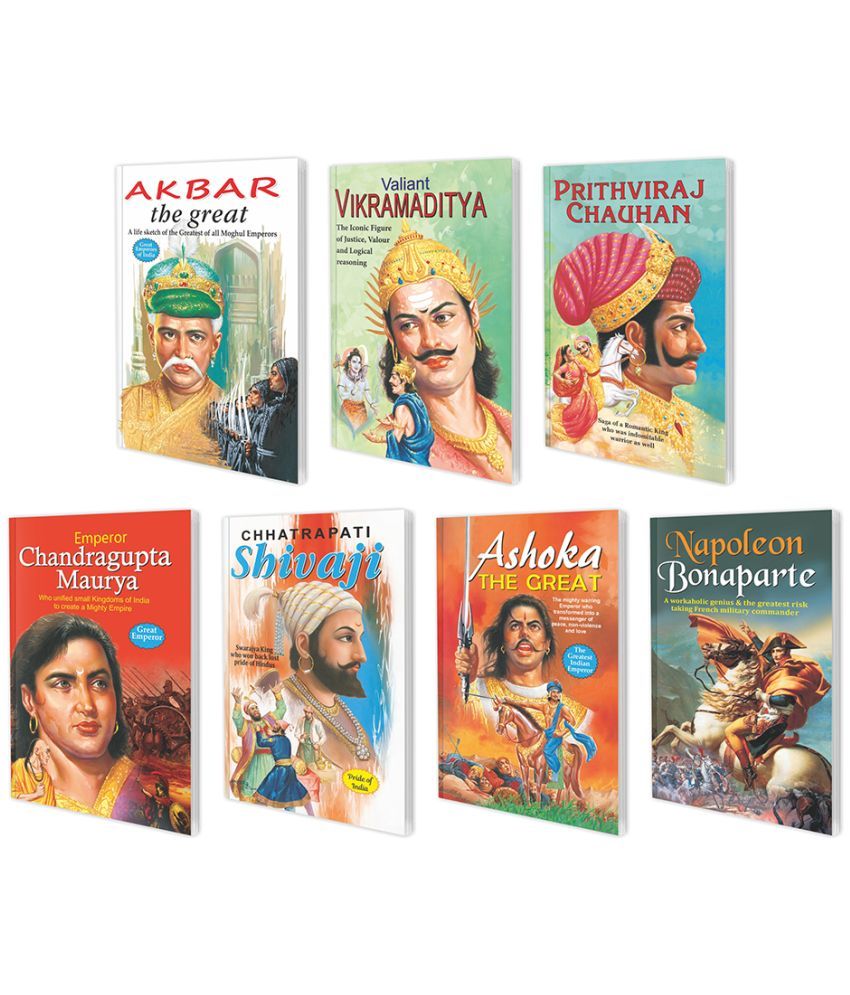"Sawan Presents Napoleon Bonaparte from Biographies of Great Personalities. Napoleon Bonaparte was a French military and political commander who came to prominence during the French Revolution and won major victories during the Revolutionary Wars. As First Consul from 1799 until 1804, he served as the de facto head of the French Republic. Napoleon I reigned as Emperor of France from 1804 until 1814, and then again in 1815. Napoleon controlled European and global events for almost a decade while leading France in the Napoleonic Wars against a succession of alliances. He won most of his conflicts and the overwhelming majority of his battles, establishing a massive empire that dominated over continental Europe until its demise in 1815. He was one of history's greatest military leaders, and his battles and campaigns are studied in military academies across the globe. Napoleon's political and cultural legacies have survived, and he remains one of the most acclaimed and divisive figures in global history.
Sawan Presents Ashoka the Great from Biographies of Great Personalities. Ashoka, also known as Ashoka the Great, was an Indian monarch of the Maurya Dynasty and the son of Bindusara, who governed practically the entire Indian subcontinent from around 268 to 232 BCE. Ashoka aided in the spread of Buddhism across ancient Asia. Ashoka, often regarded as one of India's greatest kings, enlarged Chandragupta's empire to include territory ranging from modern-day Afghanistan in the west to modern-day Bangladesh in the east. Except for sections of modern-day Tamil Nadu, Karnataka, and Kerala, it spanned the entire Indian subcontinent. Pataliputra (in Magadha, present-day Patna) was the empire's capital, with provincial capitals at Takshashila (later Taxila) and Ujjain. After the Kalinga war, Ashoka became dissatisfied with the slaughter and resolved never to fight again. During his reign, he was a supporter of Buddhism.
Sawan Presents Valiant Vikramaditya. the book is full of insights, personal moments and life experiences faced by them. Every common man who by his sheer grit and hard work achieves success should share his story with the rest for they may find inspiration and strength to go on, in his story. It gives us an understanding on his journey of success.
Sawan Presents Akbar the Great from Biographies of Great Personalities. The third Mughal Emperor was Akbar. He was born in the town of Umarkot (now Pakistan). On the holy day of March 21, 1546, he adopted Islam. He was the son of Humayun, the second Mughal Emperor. When his father died in 1556, Akbar became the de jure king at the age of 13. Bairam Khan was named Akbar's regent and main military commander. Soon after taking control, Akbar defeated Himu, the Afghan troops' leader, in the Second Battle of Panipat. After a few years, he abolished Bairam Khan's regency and assumed control of the realm. He first offered the Rajputs friendship. He did, however, have to battle some Rajputs who were hostile to him. In the Battle of Haldighati in 1576, he defeated Maha Rana Pratap of Mewar. The Mughal empire became more than twice as large as it had been previously, spanning most of the Indian subcontinent save the south, thanks to Akbar's campaigns.
Sawan Presents Prithviraj Chauhan from Biographies of Great Personalities. Prithviraja III, often spelled Prithviraj Chauhan or Rai Pithora, was a Chahamana dynasty monarch. In modern-day northwestern India, he governed Sapadalaksha, the old Chahamana domain. He ruled over a large portion of modern-day Rajasthan, Haryana, and Delhi, as well as portions of Punjab, Madhya Pradesh, and Uttar Pradesh. Ajayameru served as his capital. Prithviraj gained military victories over various neighbouring kingdoms early in his reign, most notably against the Chandela monarch Paramardi. Additionally, he repelled early incursions by Muhammad of Ghor, a Muslim Ghurid dynasty prince. However, in 1192 CE, the Ghurids conquered and executed Prithviraj at the Second Battle of Tarain. His loss at Tarain is seen as a watershed moment in the Islamic conquest of India, with various semi-legendary stories describing it. Prithviraj Raso, the most prominent of these stories, portrays him as a Rajput.
Sawan Presents Emperor Chandragupta Maurya from Biographies of Great Personalities. In ancient India, Chandragupta Maurya founded the Maurya Empire. Chandragupta established one of India's biggest empires. The life and achievements of Chandragupta are documented in ancient Greek, Hindu, Buddhist, and Jain scriptures, although the accounts differ greatly. Chandragupta Maurya was a pivotal person in India's history, laying the groundwork for the first kingdom to unify the majority of India. Chandragupta, under the tutelage of Chanakya, established a new empire founded on statecraft ideas, amassed a huge army, and proceeded to extend the empire's borders until he eventually renounced it in favour of an austere life in his last years.
Sawan Presents Emperor Chhatrapati Shivaji from Biographies of Great Personalities. Shivaji Bhonsale I (Chhatrapati Shivaji) was a Maratha emperor from India. The Maratha Empire began when Shivaji cut an enclave from the fading Adilshahi sultanate of Bijapur. In 1674, he was crowned Chhatrapati of Raigad. Shivaji had alliances and conflicts with the Mughal Empire, the Sultanates of Golkonda and Bijapur, and the European colonial powers. Shivaji's army captured and built forts, and formed a Maratha fleet. Shivaji created a civil rule with well-structured administrative organisations. Marathi and Sanskrit were pushed as judicial and administrative languages, replacing Persian.
"

